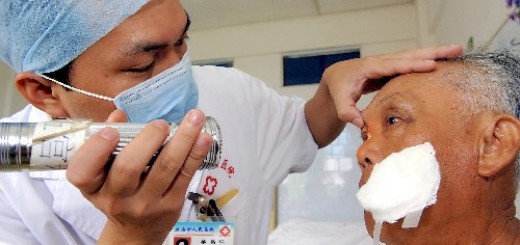胸腺基质淋巴细胞生成素(TSLP)是一种由上皮细胞产生的白介素7样细胞因子, 与靶细胞TSLP受体相互作用, 进而诱导一 种特殊类型的炎症型Th2细胞反应, 与哮喘及其他过敏性疾病的发病有关。
来自韩国的研究人员发现:人参达玛烷皂苷Rg1能够抑制TSLP的产生,抑制细胞炎症介质的释然,并且抑制细胞凋亡,从而发挥抗过敏性鼻炎的作用。该研究发表在2013年第六期的《免疫药理和免疫毒理》杂志上。
最近的一项研究报告说,韩国红参降低过敏小鼠的鼻过敏炎症反应。然而,人参皂苷Rg1 ( RG1 )对过敏性鼻炎(AR)的机制没有得到阐明。在这项研究中,采用了卵白蛋白(OVA )诱发的过敏性鼻炎小鼠模型,评价了Rg1的抗过敏作用。
结果发现:Rg1显著降低胸腺基质淋巴细胞生成素(TSLP )和白细胞介素( IL ) -1β的水平。同时,在Rg1治疗的过敏性鼻炎小鼠中,过敏症状(如擦分数)和生物标志物(如脾脏重量,组胺, IgE和IgG1)的水平均下降。同时,干扰素-γ水平提高,而IL- 4水平降。在Rg1组,嗜酸性粒细胞和肥大细胞浸润也下降。 RG1同时也减少炎症相关蛋白的水平。另外,Rg1抑制鼻黏膜组织中的凋亡酶caspase -1活性。
这个研究的结果表明, 在动物模型中,Rg1具有较强的对抗过敏性鼻炎的活性。
Related Articles
Ginsenoside Rg1 inhibits the TSLP production in allergic rhinitis mice.
Immunopharmacol Immunotoxicol. 2013 Dec;35(6):678-86
Authors: Oh HA, Seo JY, Jeong HJ, Kim HM
Abstract
Recent study reports that Korean red ginseng reduces the nasal allergic inflammatory reaction in an allergic murine model. However, the contribution of ginsenoside Rg1 (RG1) and its mechanisms on allergic rhinitis (AR) have not been elucidated. In this study, we evaluated the important activities of RG1 in the ovalbumin (OVA)-induced AR mice. RG1 significantly reduced the levels of thymic stromal lymphopoietin (TSLP) and interleukin (IL)-1β compared with the AR control mice. Allergic symptom such as rub scores and biomarkers such as spleen weight, histamine, IgE and IgG1 in the RG1 group were decreased compared with the AR mice. The levels of interferon-γ were enhanced while the levels of IL-4 were reduced in the RG1 group. In the RG1 group, the eosinophils and mast cells infiltration increased by OVA were also decreased. RG1 reduced the levels of inflammation-related protein. RG1 inhibited the caspase-1 activity in nasal mucosa tissue. In addition, RG1 inhibited the production of TSLP and IL-1β and the activations of caspase-1, receptor interacting protein 2, IκB kinase-β and nuclear factor-κB/Rel A in activated HMC-1 cells. Our results indicate that RG1 has the inhibitory effect of TSLP production and caspase-1 activity in AR experimental model.
















































